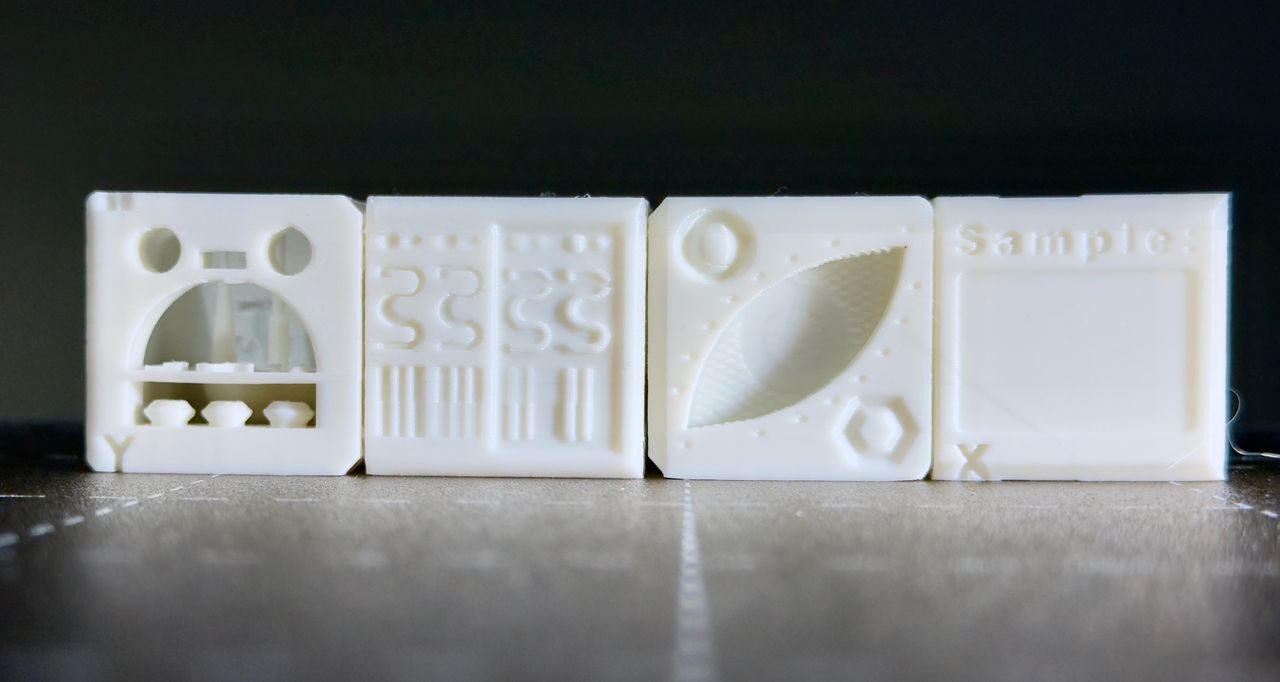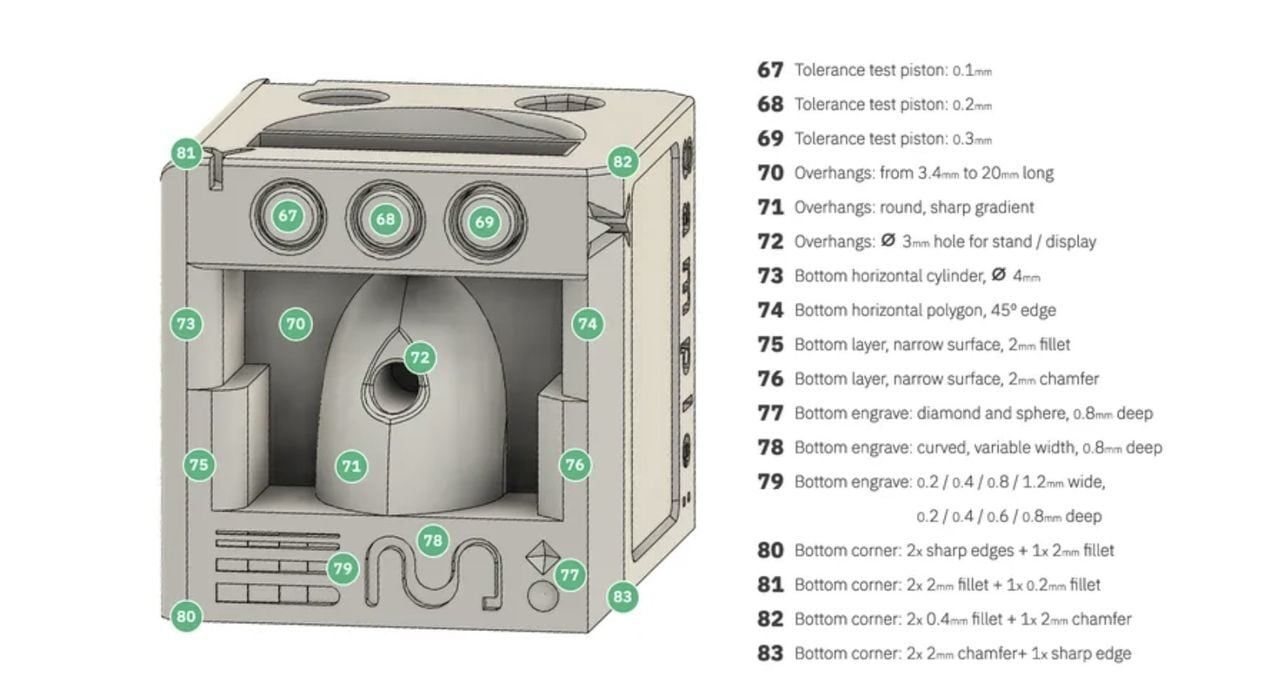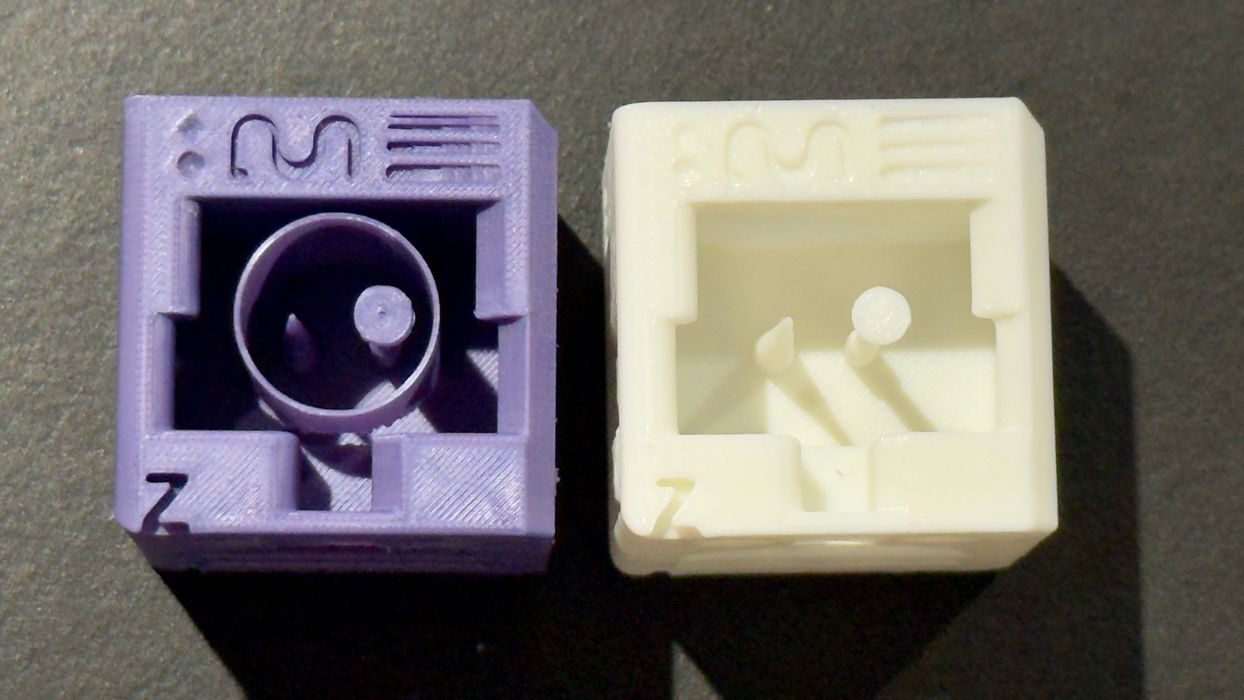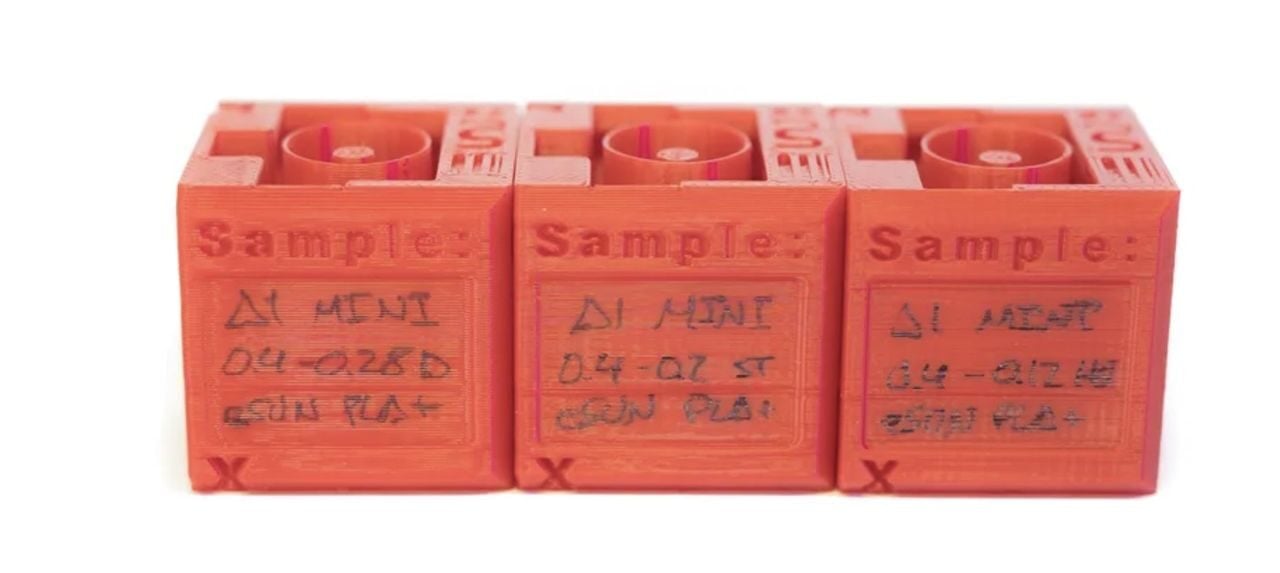
I’ve been testing a new benchmark object, the QuBenchy.
With the recent (and now concluded) controversy over the long-time favorite 3D print object, the #3DBenchy, I wondered if there were any other objects that could serve this purpose.
Of course, there are hundreds of benchmark objects found in 3D model repositories these days. Some are variations of the original #3DBenchy, and others are original designs.
Some are designed to investigate very specific aspects of 3D printing. For example, the Temperature Tower 3D models are used only for determining the optimal print temperatures for a new material.
That’s all good, but the amount of time you must spend to get all these tests done can add up. Some of the benchmark objects are rather large and they take a fair bit of time to print, even on today’s high-speed 3D printers.
Let’s face it: calibration objects are what stand between you and the objects you really want to print. They should be kept to a minimum.
One general-purpose benchmark object I recently ran across is the QuBenchy, which seems to be quite well designed by José L. González, who writes:
“With the surge of more advanced and affordable 3D printers, any cheap, average machine can now poop a decent 3D Benchy. That defeats the very purpose of the benchmark, and calls for a new one that can stress the printers again. Also, 3D printing has spread beyond its original niche, with new users focused on designs, end results, speed, precision, and professional applications.”
This is why he created the QuBenchy: it includes 80 (EIGHTY!) different tests in its features, and packs it all into a very small and compact object. González explains:
“I created the QuBenchy. An open, fast, light, compact, and complete 3D printing benchmark to test and compare not only printers, printing profiles, and filaments, but also the behavior and finishing of multiple design choices and features on all orientations, e.g. chamfer vs. fillet vs. sharp edges, wall thickness, embossing, engravings, round vs. polygonal shapes, textures, overhangs, and much more!”
It does print quite fast and requires no supports, just like a #3DBenchy. One feature I particularly like is that it is stackable. This means you could run a series of tests and place the results side-by-side to easily compare the part quality.
In the QuBenchy Printables page, González includes a series of diagrams explaining the 80 different test features, which are incredibly detailed.

OK, so there are 83 tests.

Another terrific feature is a blank, flat spot on the back that can be used to quickly annotate the test for reference. This is something more difficult to do on the curvy #3DBenchy.

Will QuBenchy overtake #3DBenchy? Not likely, as the original benchmark has now passed into legendary status and will exist until the end of time.
But for those of us that want a quick print that tests a ton of features in one job, QuBenchy can do that.
The #3DBenchy is a bit cuter, though.
Via Printables
